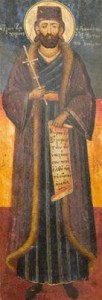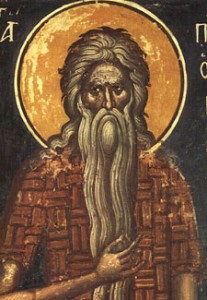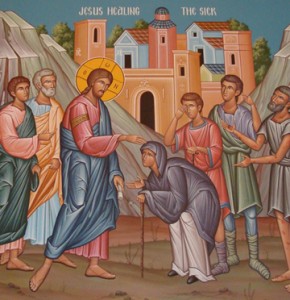 Two of the readings for January 20th are Wisdom of Solomon 3: 1-9 and Luke 6: 17-23.
Two of the readings for January 20th are Wisdom of Solomon 3: 1-9 and Luke 6: 17-23.
Though one is from the Old Testament and the other is from the much later time of the New Testament, they both tell us that the “now” of the present life is a passing reality. The “then” of eternity, and its everlasting reality, is what matters.
The reading from the Wisdom of Solomon describes the deaths of righteous people living among ungodly and powerful people, as the Jews of Alexandria were doing at the time the book was probably written. The author makes clear the difference between what appears in this world to be the fate of the righteous, and what constitutes the true reality of their lives. First he writes, “In the eyes of the foolish they seem to have died, and their departure was thought to be a disaster, and their going forth from us to be their destruction.”
Even to the other Jews, apparently, these deaths were a disaster, and the final destruction of life. The following verses, however, show that another reality was actually being worked out: “But they are at peace. For though in the sight of others they were punished, their hope is full of immortality. Having been disciplined a little, they will receive a great good, because God tested them and found them worthy of Himself.”
In the passage from Luke, often called the Sermon on the Plain, Christ Himself tells us that this world’s painful difficulties fade into nothing when we know the glory of the future with God: “Blessed are you when men hate you, and when they exclude you, revile you, and defame you on account of the Son of Man. Rejoice in that day and leap for joy, for surely your reward is great in heaven; for that is what their ancestors did to the prophets.” Not only does Christ reassure us about our own lives; He also reminds us that others—such as the righteous people described in Wisdom of Solomon—experienced the same things.
On this day the Church honors the New Martyr Zachariah of Patras, who lived in the late eighteenth century. He was born a Christian, but converted to Islam. Living as a Muslim for many years, he still kept and read a book called “The Salvation of Sinners.” The book’s powerful words finally convinced him that he had made a dreadful mistake.
Zachariah publicly declared his intention to return to Christianity, having received absolution from a Christian elder. For this he was tortured so severely that he died. When the local Christians asked permission to bury him, the Muslim ruler said he was unworthy of burial, having betrayed two faiths. His body was dragged through the streets and unceremoniously tossed into a dry well.
Yet people approaching the well saw an unearthly light shining above it. This man, who in life was pronounced unfit even for a proper burial, had found the “then” of God’s forgiving and welcoming love.


